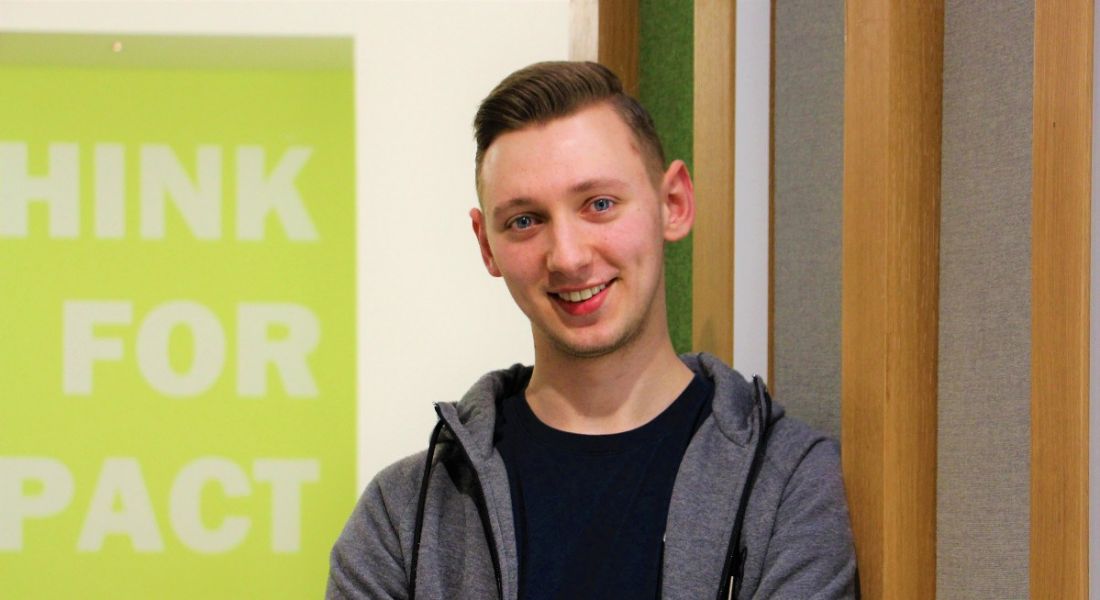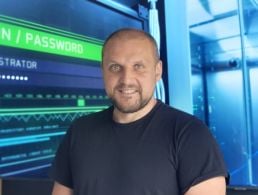In the war for tech talent, fostering employee wellbeing could be the key to attracting top candidates like software engineering graduate Ovidijus Parsiunas.
One of the most significant trends among those who think about the future of work these days is promoting employee wellbeing.
Most enterprise leaders are now wise to the fact that happy employees are more productive. Allowing employees flexibility and encouraging them to preserve their welfare will give workers an extra boost of motivation, and it really doesn’t cost organisations that much to implement.
For software engineering graduate Ovidijus Parsiunas, it was the emphasis on employee wellbeing at Liberty IT that really sold him on the company. It created the perfect environment in which he could develop his skills and flourish. We caught up with Parsiunas, who has been on the Liberty IT graduate programme for almost a year, to ask him about what a day in his life at the firm is like.
What did you study in college?
I studied an MEng in software engineering at Queen’s University, Belfast.
With this programme, are you now working in your desired industry?
Yes, I feel I am exactly where I wanted to be when I began studying my degree.
What drew you to Liberty IT when you were seeking work as a graduate?
Liberty IT was a company that had always stood out to me. With an exciting company culture, a great work-life balance and the ability to work with latest technologies, it was undoubtedly my first company choice!
What expectations did you have before you began the programme?
As a graduate, I was very keen to get exposed to working in the IT industry. Having studied software engineering for five years, I could not wait to put my knowledge to practice. Due to the large size of the company, I wasn’t aware of what kind of a team I would be joining or what software stack I was going to be utilising, so I expected to work with an array of the most popular front-end and back-end technologies.
What duties and responsibilities were you given initially?
When I joined Liberty IT, my team understood that there was a steep learning curve utilising new technologies and understanding the business domain. Therefore, I was initially sent on a month-long training course which exposed me to some of the programming disciplines used by the company. I was also given a number of online courses which taught me about the company’s business model and its culture.
Upon joining my team, I was introduced to the specific software stack they were using and was given several tasks to get me started. These consisted of small bug fixes, comparator changes and unit tests, which gave me an in-depth introduction to the used code-base.
Did the scope of your work change as the programme progressed?
As I became more experienced in working with my team’s web app, I was given more complex tasks which involved working with the bigger part of its architecture, such as propagating data from the database layer to the front-end which could be viewed by our users.
As I was becoming more comfortable in working with the system, I found myself asking my teammates fewer questions and, instead, they could now rely on me to answer some of their techy inquiries. Due to the large size of our application, the part of the app that I’m now working on is quite different than when I had initially started since our team is consistently receiving new requirements for implementing new features. The variation of work makes each day exciting and always keeps me on my toes.
Can you describe a typical day in your role?
Since Liberty IT has a great work-life balance structure, I can come in to work in the morning any time between eight and ten o’clock. The first thing I do when I get to my desk is check my emails to catch up on the progress of some of the features we are currently implementing, any bugs that may have been identified and anything else that is happening within the company, such as our social events. I would then progress to carry on with the task that I was working on the day before or pick up a new one by taking a sticky note from our stories board and placing it on the ‘In Progress’ area.
In the morning, my team and I would go for a quick coffee break to have a catch-up on our projects before starting to continue with our coding for the day.
We are lucky that our office is in the centre of Belfast with lots of local shops, restaurants and cafés within the area – we always have the opportunity to try something new.
After lunch, I dial into a scrum meeting with my American colleagues to inform everyone on what I have been doing, if there are any issues and what I will be doing for the rest of the day. This also gives me an opportunity to get an update on what everyone else in the team is doing. After this, if any of our Belfast team members have completed a task, we usually book a conference room and do a quick code review, otherwise we go back to work on our assigned tasks.
How do your responsibilities compare to more experienced employees’?
My personal responsibilities comprise working at a relatively low level of the system where architectural decisions are moderately minor. However, many of my senior colleagues are regularly meeting our product-owners to make crucial decisions at a high level of our system, such as how some of our new features should be implemented.
It’s also their responsibility to coach less experienced developers such as myself by bringing us up to speed with some of the coding practices or business knowledge.
Do you feel more prepared for working life after completing this programme?
Prior to joining Liberty IT, I had a rough idea on how the IT industry operates and manages to deliver huge products to the customers.
Having been in the company for almost a year now, all of this uncertainty has cleared up and I am now able to follow the full cycle of a project’s development and understand the importance of all the artefacts involved.
Furthermore, because Liberty IT actively encourages its employees to learn and develop, I have participated in a multitude of training courses that have sharpened my programming skills and I have recently become certified as a Java developer and an AWS solutions architect.
Why should someone apply to the graduate programme at Liberty IT?
Liberty IT is a company that truly values the wellbeing and personal development of its employees. This is an amazing place to start your software developer career.




